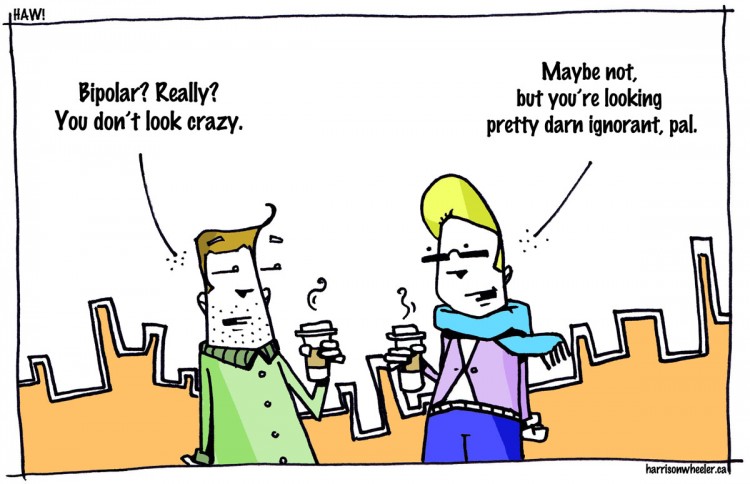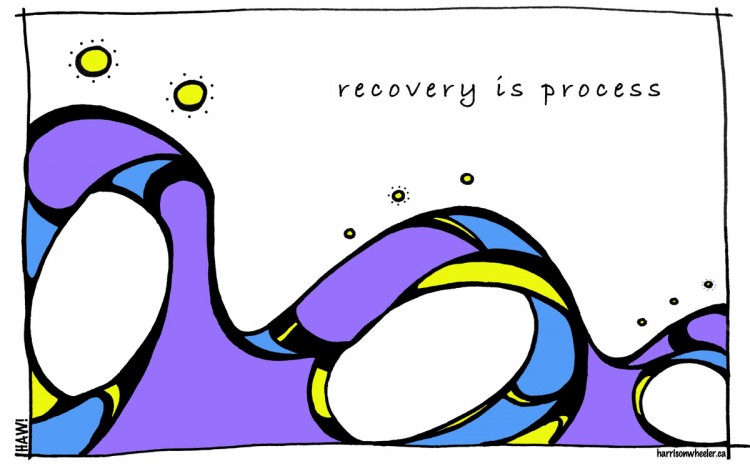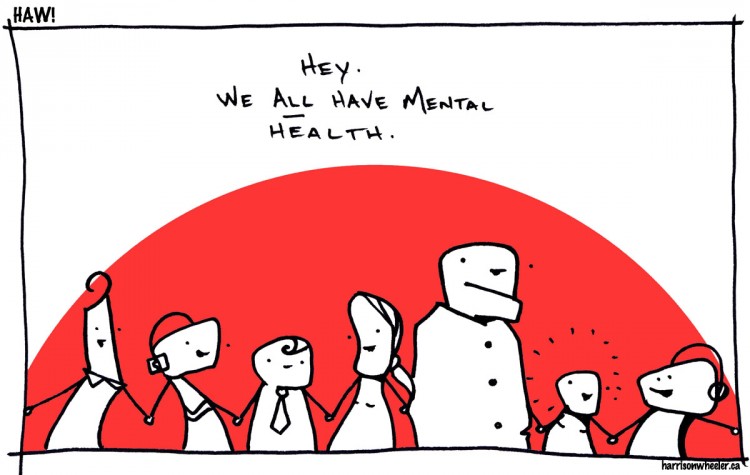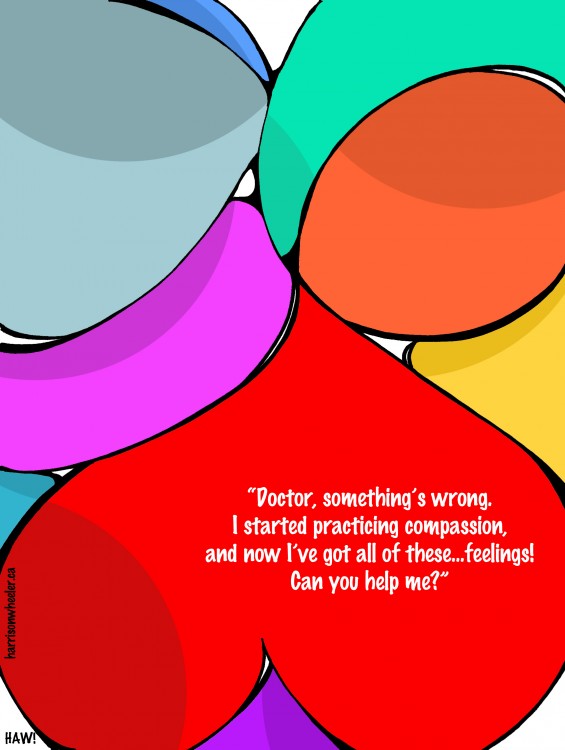For illustrator Harrison Wheeler, humor heals. Wheeler, a former vice principal turned artist and mental health advocate, creates mental-health inspired artwork based on his experience living with type 1 bipolar disorder and addiction.
• What is Bipolar disorder?

“Drawing is my zen, it’s how I think, how I communicate,” Wheeler told The Mighty. “I’ve always been socially-minded with my art, be it comedy, writing or drawing. [A]fter mounting my one-man show ‘Jesters Incognito,’ it dawned on me that my art could help a lot of people. Drawings are easy to share and say so much efficiently. There’s a lot of words on the internet, yet showing is so much more effective than telling.”

As a professional cartoonist, Wheeler creates a variety of images for campaigns as well as his mental health advocacy work. “I’ve drawn rather glib cartoons and more PSA comic strips on suicide – those were rough, to be honest – as well as inspirational designs,” he said.
Given his familiarity with corporate environments (many of his illustrations are dedicated to marketing and communications) Wheeler hopes his creations can help alleviated some of the workplace stigma around mental illnesses. In Canada, where Wheeler is from, an independent survey revealed 71 percent of Canadians living with a mental illness are concerned about workplace stigma.

“I approach recovery from mental health by speaking and leading workshops on how creativity helped me self-actualize, how in fact I believe mental health can be viewed as an asset for living our lives more creatively, and how communicating with compassion in the workplace is going to make for healthier, wealthier lives,” Wheeler said. “I try to approach the subject with comedy because there’s enough drama in the world.”

From his portfolio, Wheeler says his favorite cartoons include, “We All Have Mental Health” and “Compassion Problem.” “I dunno, I like them because they are at opposite ends of the spectrum of my style.”

“It’s a strength,” Wheeler said, commenting on what it’s like to live with a mental illness. “It’s a beautiful accent to your character. Once we are able to accept it and learn to manage it, our conditions are no more limiting than an oddly shaped birthmark on our knee.”

